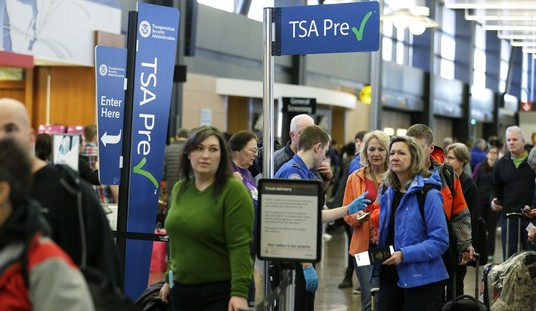Donald Trump has provided two great services to the nation during this campaign season. The first is that he has already accomplished something Republican voters have been dreaming about for years. He defeated the Republican Establishment. Without Trump in the race, it's likely that Jeb Bush or a similar candidate would be the nominee.
Trump's second great contribution has been highlighting the silliness of the nomination process. Trump says it's rigged, but that's giving the designers of the system too much credit.
For example, the numbers of delegates allocated to each state bear no relationship to the number of Republican voters in that state. In Florida, 4.2 million people voted Republican in the last presidential election and the state has 99 delegates. That's one delegate for every 42,000 votes. But Washington, DC gets 19 delegates, despite the fact that there were only 21,000 Republican votes for president. That's one delegate for every, 1,100 votes. Talk about unfair!
What's especially silly about this is that the most underrepresented states are swing states like Florida, Ohio, Pennsylvania, Virginia, Colorado, and North Carolina. If Republicans were designing a system from scratch, they might consider giving these key Electoral College states bonus delegates rather than the current system.
If the delegates were assigned to states based upon the number of Republican voters in the state, Trump would have 907 delegates today instead of 845. Senator Ted Cruz would have about a dozen fewer delegates than he does at the moment. So, on the surface, it might look like Trump is right to complain about the rigged process being stacked against him.
Recommended
But another quirk in the system is that some states award delegates on a winner-take-all basis, some proportionally, and some in other ways. On top of that, many Congressional Districts with hardly any Republican voters have just as many delegates as Districts teeming with Republicans. Even crazier, some states allow non-Republicans to vote in the primary. These quirks have helped the Trump campaign enormously.
If you wanted to accurately reflect voter preferences, you would get rid of these quirks and award delegates to the candidates based upon their share of the vote. If a candidate wins 10 percent of the vote, he wins 10 percent of the delegates. Under that seemingly fair system, Trump would be doing far worse than he is today. He would have only 658 delegates followed by Cruz at 474, Rubio at 258, and Kasich at 239.
So far, the rules have given Trump 28 percent more delegates than his share of the vote warrants. Cruz has gotten an 18 percent bonus. That may not seem quite right, but it's playing the game by the rules as written. It's certainly fair in the sense that everybody knew the rules before the campaign began.
The question now is whether Trump or Cruz will become the Republican nominee. That will be determined by voters in 15 remaining state contests. Each man is expected to win several of those states and a few will be close. It won't be decided until the last votes are cast on June 7 in California. But, regardless of who wins, the irrational process has already reflected the will of Republican voters by rejecting the Establishment candidates.

























Join the conversation as a VIP Member